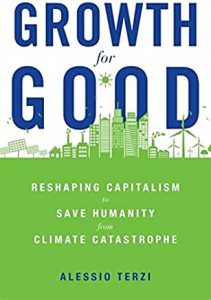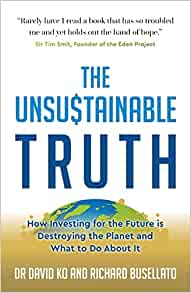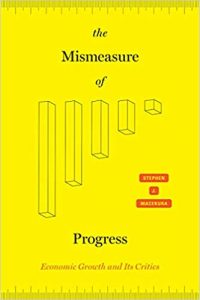Or so sang the famous frog.
I’ve been dipping into a couple of new how-to books about sustainability. Growth for Good: reshaping capitalism to save humanity from climate catastrophe is by Alessio Terzi, an economist in the European Commission. The book starts with a spirited defence (against degrowthers) of the need for growth, making both the negative case (politically impossible, growth is necessary for job creation) and the positive (what Benjamin Friedman set out in his 2006 book as the moral case for economic growth, and the spirit of Enlightenment discovery). It does an excellent job of pointing out the silences and the inconsistencies in degrowth arguments. After all, we look set to experience degrowth (aka recession) this year and it’s unlikely to be a good experience. And if we’re going to degrow, what do we do about innovation – stop new vaccines? Not all degrowthers are the same but there are certainly some vocal ones who manifest deep ignorance about what is in and out of GDP and what its growth consists in.
The second part of the book is an exploration of what steps can turn the growth we have into the sustainable variety, and sets out a green strategy. It does include the economist’s favourite tool of carbon pricing, but also government strategic regulation and investment, and the role of finance and business.
Which takes me to the second, The Unsustainable Truth: How investing for the future is destroying the planet and what to do about it by David Ko and Richard Busellato. They are investment managers and their peers are one of the target audiences. This is an extended sermon on the need for the investment industry to take the future into account in a broader sense than financial returns. They offer the almost-certainly unpopular thought that funding pensions of the future through their industry is not compatible with sustainability: “We do need to consider a life without our pension investments. This does not mean that we should not invest, but it does prompt us to rething how we support each other as we age, and investments need to arise from that context.”
The book, which is full of anecdotes and lively examples, also urges everyone to try things out that will help with sustainability – car sharing, walking further, spending more time with our neighbours. Businesses too – try out small changes that might make a difference. It’s an appealing case, but it seems to me the self-motivated small changes will never add up to be big enough. Governments are going to need to get involved and make us do things differently, just as they have already with the incentives for recycling waste and the switchover to electric vehicles.
But, as Kermit knew, it’s not easy. Particularly when there’s a government that believes in the magic of the market to solve all problems.




